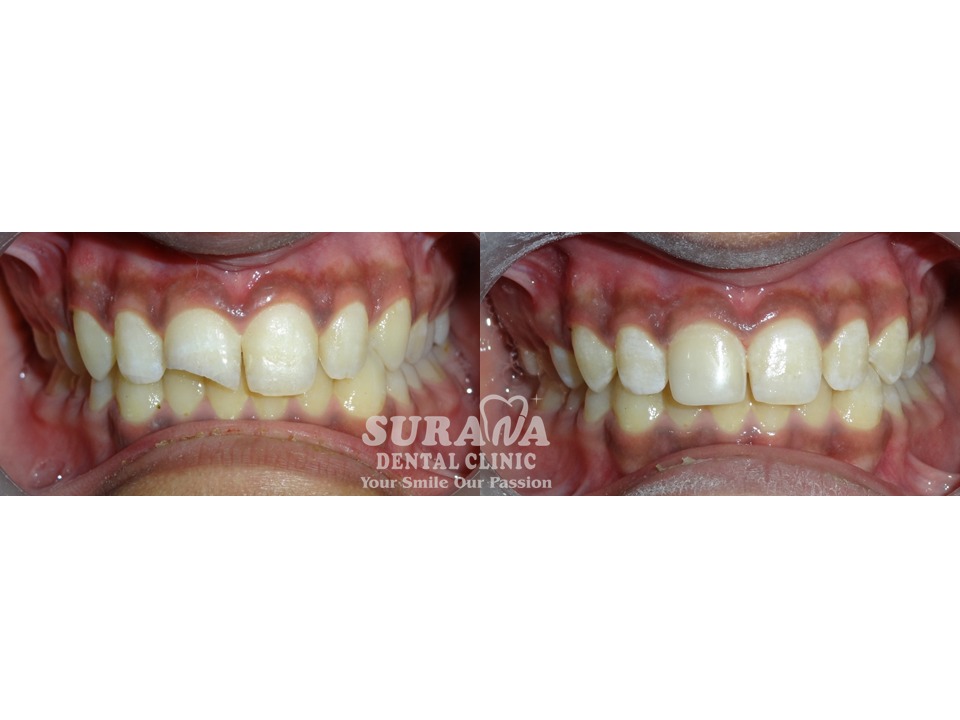Before And After Images Of Successful Treatment






A tooth fracture is a break or crack in the hard shell of the tooth. The outer shell of the tooth is called the enamel. It protects the softer inner pulp of the tooth that contains nerves and blood vessels. Depending on the type of fracture, the tooth may not cause any problems or it may cause pain.
Causes :
Chewing on hard foods or accidentally biting down on a hard object can lead to a crack in the tooth. Teeth can also be fractured with a blow to the face that can occur with a car accident or during a sporting event.
Symptoms :
Not all tooth fractures cause symptoms. For example, craze lines rarely cause problems.
Other fractures may expose the sensitive pulp to fluid, food, and bacteria in the mouth. It can cause irritation or infection in the pulp. This can lead to:
• Pain with chewing
• Chewing only on one side of your mouth to avoid discomfort
• Sharp pain when you bite down
• Pain with cold or hot air or food
• Random pain
Vertical root fractures may not be noticed until a bone or gum infection develops.


Treatment :
Teeth cannot heal. The treatment goal is to protect the tooth and the pulp .. The treatment will depend on the severity of damage to the tooth. Options may include:
• Dental bonding (direct composite build up): This is the most common mode of treatment for any tooth fracture if the tooth fracture is not so extensive.
• Crown—A cap is placed over the tooth. A temporary crown will be placed at first to make sure it corrects the problem. A permanent crown will eventually be placed.
• Dental Veneer—A thin covering that is placed over the tooth if you have small chip in the surface.
• Root canal—May be needed if there is severe damage to the pulp.
• Tooth extraction—The tooth may need to be removed if the crack extends below the gum line.
• Removal of the fractured portion—May be possible in vertical root fracture.
So for any concern with respect to tooth fracture book an appointment at Surana Dental Clinic so that we can guide you through proper treatment.

